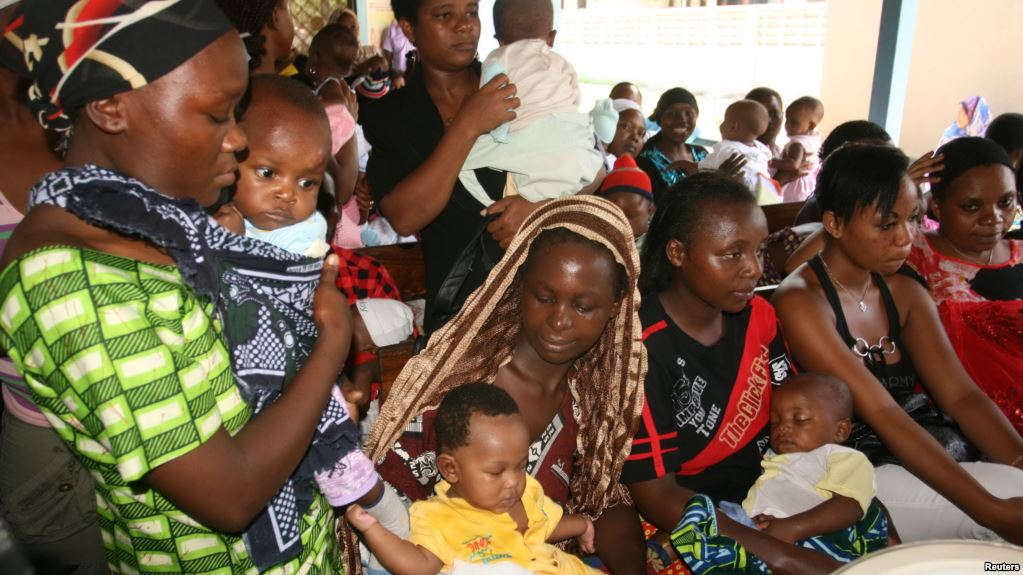Nigeria has one of the world’s maternal and child health indices. Could this initiative change all that? Tola Oladimeji reports
Late 2017, several Nigerian states held their last rounds of Maternal Newborn and Child Health weeks for the year. Starting from the 27th of November 2017, 4 states conducted their Maternal, Newborn and Child Health Week, they were Plateau, Kaduna, FCT and Bayelsa.
Basically, the MNCH week is a week-long exercise providing simple interventions for mothers and their children within the communities. It is designed to ensure that the poorest and hardest to reach are actively sought out and provided free MNCH services.
MNCH week was first introduced in 2010 as an intervention that could contribute towards lowering the high mortality rates among women, newborns and under-fives in Nigeria towards reaching the MDG 4 and 5.
It has been described by Nigeria’s National Primary Health Care Development Agency (NPHCDA) as ‘a simple one-time delivery mechanism that consolidates services that are likely to immediately demonstrate impact in terms of significantly increasing coverage levels of core preventive and curative interventions that can improve the health of mothers and children’.
The program was sponsored by the federal ministry of health, the NPHCDA and UK Department for International Development (DFID); Micronutrient Initiative, Helen Keller International, World Bank, Save the Children, Vitamin Angels, WHO, UNFPA and UNICEF.
It is targeted at Pregnant, lactating women and children under the age of five years. It was outlined as a key strategy in the IRMNCH strategy of 2007, a policy and strategic document released then in the then frenzy of pushing down maternal and child mortality rates before the 2015 MDG deadline. It was then hoped that the MNCH week would achieve the following:
To improve the utilisation of routine services
To contribute to health systems strengthening
To increase uptake of Antenatal care (ANC)/Prevention of mother to child
transmission (PMTCT) services and retention in care
To improve key healthy household practices
To improve the capacity of health workers to deliver Maternal, Newborn
and Child Health interventions.
To improve utilisation of health information management systems
But what could an annual week-long provision of maternal and newborn health services do, when there is a need all year round? This question was evaluated by UNICEF last year.
Has the MNCHW contributed to improve the health status of women and children in Nigeria, by increasing coverage of key maternal, newborn and child health interventions? Are MNCHW a priority delivery platform in Nigeria? Is it a sustainable investment, considering that same report say FG’s investment has decreased over the years with sponsors carrying more of the weight. Are its objectives consistent with national priorities for the health sector? And will an investment of this money in structures that will eventually reach these hard-to-reach settlements?
Is it better for under-reached population to be reached twice in a year, than none at all? It would seem so to most people. Data proves that MNCH interventions are important. MNCH week complements the regular healthy facility-based services & intended to provide additional opportunity to those unable to access these life-saving interventions.
It provides periodic bursts of service, it serves a key purpose of generating demand for primary care services in your local PHC, in addition to the extension of access that it guarantees.
Typical services provided at #mnchweek include Malnutrition assessment, Vitamin A supplementation, ante-natal services, family planning services, treatment for malaria and screening for HIV.
The design of #mnchweek is to ensure that the poorest and hardest to reach are actively sought out and provided free MNCH services.
Considering it is often said that the most dangerous pace for a woman to have a child is in SSA, any intervention would be welcome, yeah? But not at the expense of more cost-effective initiatives.
MNCH week is an integral part of the Integrated Maternal, Newborn and Child Health strategy and was adopted by the 36 states and the Federal Capital Territory FCT to accelerate the achievement of the MDGs 4 &5. The objective of the week is to improve the healthcare seeking behavior of the whole family, especially pregnant women and care-givers of under-five children.
The MNCH weeks were designed to reach the marginalised groups, the coverage to groups in
rural areas/hard to reach areas is limited. Which are great goals. It is however very likely that the poor community structures which kept healthcare would hinder this goal during the MNCH week.
